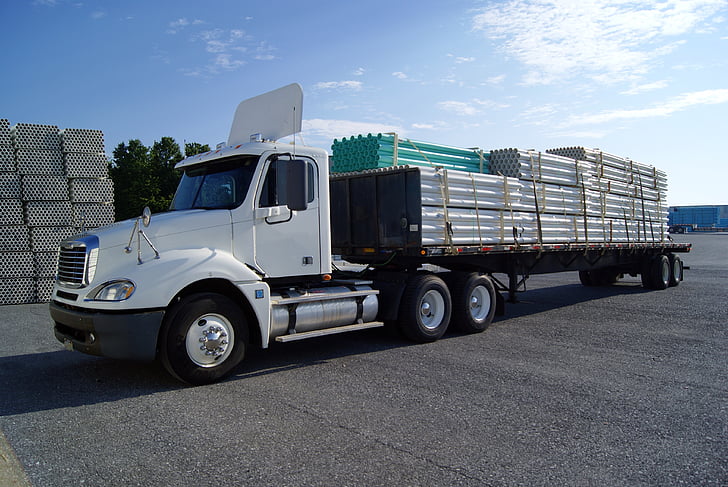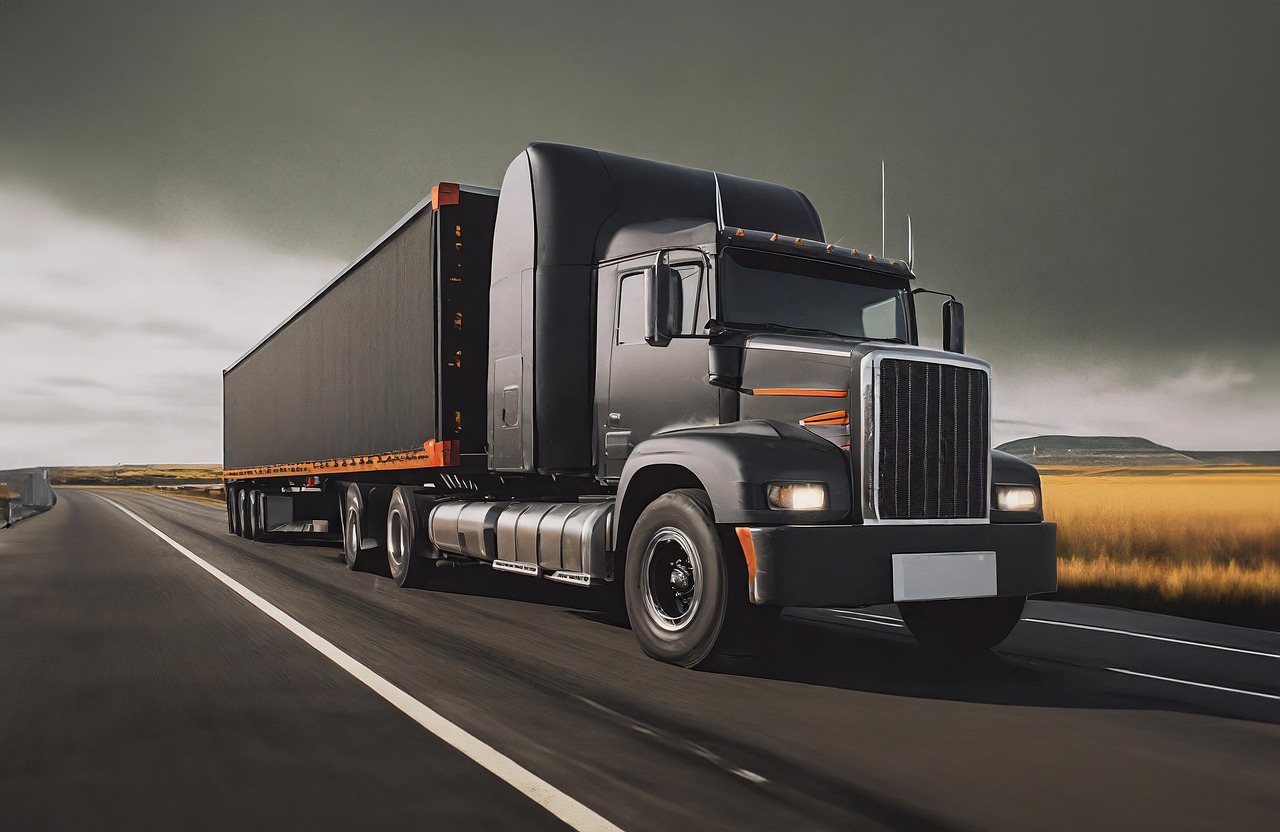Best Truck Insurance for Owner Operators

| In this article we will read about: |
|---|
| Introduction |
| Types of Insurance Coverage |
| Top Insurance Providers for Owner Operators |
| Factors to Consider When Choosing Insurance |
| Additional Coverage Options |
| Tips for Owner Operators |
| Conclusion |
| Frequently Asked Questions and Its Answer |
Introduction
Protect your business and assets with the Best Truck Insurance for Owner Operators. As an independent truck driver, you need reliable coverage to mitigate risks and ensure compliance with regulations. Get the right insurance policy to safeguard your livelihood and keep your trucks on the road.
Types of Insurance Coverage
Liability Insurance
– Protects against financial losses due to bodily injury or property damage to others
– Covers medical expenses, lost wages, and other related costs
– Includes bodily injury liability and property damage liability
– Trailer interchange liability may also be included
Physical Damage Insurance
– Collision: Covers damages to your truck in an accident, regardless of fault
– Comprehensive: Covers non-collision damages, such as:
– Theft
– Vandalism
– Fire
– Natural disasters
– Hitting an animal
Cargo Insurance
– Covers loss or damage to goods you’re hauling, including:
– Theft
– Damage during transit
– Cargo rejection
– Contamination
– Can include coverage for refrigerated goods, hazardous materials, or high-value items
Bobtail Insurance
– Covers your truck when it’s not hauling a trailer, such as:
– Deadheading (driving without cargo)
– Driving to a pickup location
– Driving after delivering cargo
– Also known as “non-trailer” insurance
Non-Trucking Liability Insurance
– Covers your truck when used for non-business purposes, such as:
– Personal errands
– Driving to a repair shop
– Driving to a storage facility
– Also known as “personal use” insurance
Umbrella Insurance
– Provides additional liability coverage beyond standard policy limits
– Offers extra protection for severe accidents or lawsuits
– Can include coverage for:
– Bodily injury
– Property damage
– Personal injury (libel, slander, etc.)
These types of insurance coverage help protect owner operators from various risks and financial losses, ensuring they can continue operating their business with confidence.
Top Insurance Providers for Owner Operators
Progressive Commercial
– Offers customized coverage options for owner operators
– Includes coverage for liability, physical damage, cargo, and more
– Discounts available for things like good driving records and safety features
– 24/7 claims service and online policy management
Geico Commercial
– Provides affordable coverage options for owner operators
– Includes coverage for liability, physical damage, and cargo
– Discounts available for things like membership in certain organizations and safety features
– 24/7 claims service and online policy management
Liberty Mutual Commercial
– Offers comprehensive coverage options for owner operators
– Includes coverage for liability, physical damage, cargo, and more
– Discounts available for things like good driving records and safety features
– 24/7 claims service and online policy management
State Farm Commercial
– Provides coverage options for owner operators, including liability and physical damage
– Discounts available for things like good driving records and safety features
– 24/7 claims service and online policy management
– Agent network for personalized service
USAA Commercial (for military veterans)
– Offers coverage options specifically for military veterans and their families
– Includes coverage for liability, physical damage, and cargo
– Discounts available for things like good driving records and safety features
– 24/7 claims service and online policy management
Other reputable providers:
– Wells Fargo Commercial: Offers coverage options for owner operators, including liability and physical damage
– The Hartford Commercial: Provides coverage options for owner operators, including liability and physical damage
– Travelers Commercial: Offers coverage options for owner operators, including liability and physical damage
– Farmers Commercial: Provides coverage options for owner operators, including liability and physical damage
These top insurance providers offer a range of coverage options and discounts to help owner operators find the right policy for their business needs and budget.
Best Commercial Truck Insurance of 2024
Factors to Consider When Choosing Insurance
Coverage Options and Limits
– Types of coverage offered (liability, physical damage, cargo, etc.)
– Coverage limits (maximum amount paid per claim or policy period)
– Ensure coverage options align with your business needs
Premium Costs and Payment Terms
– Annual or monthly premium costs
– Payment terms (e.g., credit card, check, electronic funds transfer)
– Consider the total cost of the policy, including fees and surcharges
Deductibles and Copayments
– Deductible amount (out-of-pocket expense before insurance kicks in)
– Co-payment percentage (percentage of claim paid by you)
– Ensure you understand how deductibles and copayments work
Claims Process and Customer Service
– Ease of filing claims and getting support
– Response time for claims and customer inquiries
– Reputation for fair and timely claims processing
Financial Stability and Ratings
– Insurer’s financial strength and stability (e.g., A.M. Best rating)
– Ability to pay claims and meet financial obligations
– Research the insurer’s reputation and financial health
Discounts and Promotions
– Available discounts (e.g., good driving record, safety features)
– Promotions or special offers (e.g., new customer discounts)
– Ensure you understand the terms and conditions of discounts and promotions
Additionally, consider:
– Policy flexibility and customization options
– Coverage for specific situations (e.g., cargo theft, refrigeration breakdown)
– Insurer’s experience in the trucking industry
– Online resources and tools for policy management and claims filing
By carefully evaluating these factors, you can choose the right insurance policy for your business needs and budget.
Additional Coverage Options
Trailer Interchange Insurance
– Covers damage to trailers you don’t own but are hauling
– Includes coverage for liability and physical damage
– Essential for owner operators who frequently interchange trailers
Rental Reimbursement Insurance
– Covers rental costs for a replacement truck if yours is in the shop
– Includes coverage for rental fees and other expenses
– Helps minimize downtime and lost revenue
Roadside Assistance Insurance
– Covers emergency services like towing, fuel delivery, and lockout service
– Includes coverage for roadside repairs and other expenses
– Provides peace of mind and minimizes downtime
Business Interruption Insurance
– Covers lost revenue and expenses if your business is interrupted
– Includes coverage for things like:
– Lost income due to accidents or natural disasters
– Extra expenses to maintain business operations
– Temporary relocation expenses
– Helps ensure business continuity and minimizes financial losses
Additionally, consider:
–Refrigeration Breakdown Insurance: Covers damage to refrigerated cargo due to equipment failure
– Cargo Contamination Insurance: Covers costs associated with contaminated cargo
– Environmental Damage Insurance: Covers costs associated with environmental damage
– Driver Injury Insurance: Covers medical expenses and lost wages for drivers
These additional coverage options can provide extra protection and financial security for your business. Carefully evaluate your needs and choose the options that best align with your operations and risk exposure.
Tips for Owner Operators
Shop Around and Compare Quotes
– Research and compare insurance quotes from multiple providers, including:
– Direct insurance companies
– Insurance agents or brokers
– Online insurance marketplaces
– Consider factors like:
– Coverage options and limits
– Premium costs and payment terms
– Deductibles and co-payments
– Claims process and customer service
– Ensure you’re getting the best coverage for your business needs and budget
Consider Working with an Insurance Agent or Broker
– Insurance agents/brokers have:
– Industry expertise and knowledge of insurer offerings
– Access to multiple insurance providers
– Ability to help you navigate the quoting process
– They can:
– Help you find the best coverage for your business needs
– Explain policy terms and conditions
– Assist with claims filing and processing
Review and Understand Policy Terms and Conditions
– Carefully read and understand the policy documentation, including:
– Coverage options and limits
– Premium costs and payment terms
– Deductibles and copayments
– Claims process and customer service
– Ask questions if you’re unsure about any terms or conditions
– Ensure you understand what is covered and what is excluded
Keep Accurate Records and Documentation
– Maintain accurate records of your business operations, including:
– Vehicle maintenance and inspection records
– Driver logs and qualification files
– Accident reports and claims documentation
– Business financial records
– Keep documentation organized and easily accessible
– Ensure records are up-to-date and accurate
By following these tips, owner operators can make informed decisions about their insurance coverage and ensure they have the right protection for their business.
Conclusion
Protect your business with the right insurance coverage. Consider factors like coverage options, risk management services, cost, customer service, and financial stability. Top providers include Progressive, 1st Guard, Great West Casualty, RLI Insurance, and Sentry. Compare quotes and choose the best fit for your needs. Ensure you have the right protection to keep your business on the road.
Frequently Asked Questions and Its Answer
Q: What is truck insurance for owner operators?
Answer:Truck insurance for owner operators provides coverage for independent truckers who own and operate their own trucks.
Q: What types of coverage are available?
Answer:Coverage options include liability, physical damage, cargo, and more.
Q: How much does truck insurance cost?
Answer:Costs vary depending on factors like coverage options, driving history, and location.
Q: What is the difference between liability and physical damage coverage?
Answer:Liability covers damages to others, while physical damage covers damages to your truck.
Q: Do I need cargo insurance?
Answer:Yes, if you haul goods for others, cargo insurance is essential.
Q: Can I get discounts on my premium?
Answer:Yes, discounts may be available for things like good driving records and safety features.
Q: How do I file a claim?
Answer:Contact your insurance provider to report the claim and follow their process.
Q: What is the importance of financial stability in an insurance provider?
Answer:A financially stable provider ensures they can pay claims and meet financial obligations.
Q: Can I customize my coverage options?
Answer:Yes, work with your provider to create a policy tailored to your needs.
Q: Are there any additional coverage options available?
Answer:Yes, options like trailer interchange, rental reimbursement, and roadside assistance may be available.




